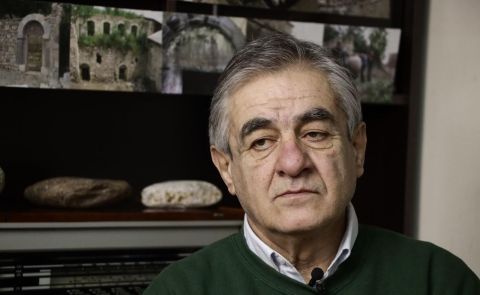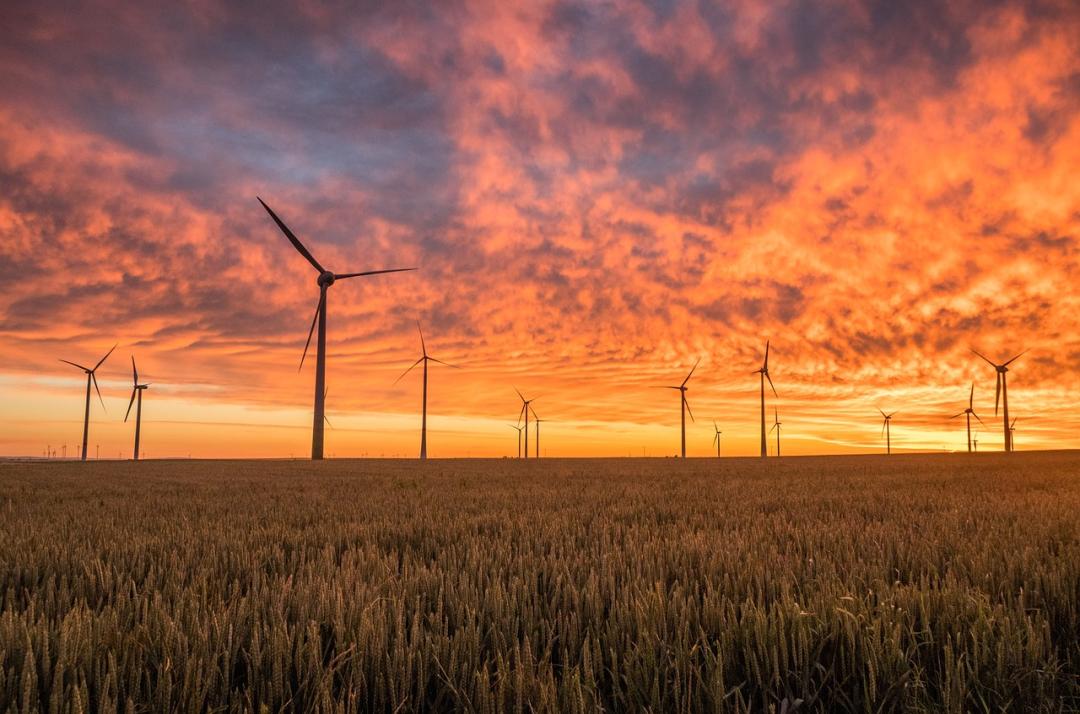
Why the Oil-Producing Azerbaijan Needs Renewables: an Interview with John Roberts

Much media attention has focused on the fact that the UN's most important climate talks are being hosted for the second year in a row by a petro-state, this time Azerbaijan. From Dubai to Baku, the question is why states whose economic base is heavily dependent on the fossil fuel economy are eager to lead the agenda on climate action. COP28 was chaired by the CEO of ADNOC, a state-owned oil company, raising eyebrows and perhaps even concerns about a conflict of interest. Similar concerns might be raised in the context of Azerbaijan, but speaking to energy sector experts, one would be led to believe that there is a sound economic rationale for Baku to engage in climate change talks, calling for the electrification and hence decarbonisation of the economy.
Following this line of inquiry, Caucasus Watch contacted John M. Roberts, a non-resident fellow at the Atlantic Council's Global Energy Center, an energy consultant, and indeed an expert on the energy sector in the Caucasus and Central Asia. His authority on energy has been built up over decades, having previously worked as a senior editor at Platts and Financial Times Energy, and as a correspondent for Reuters. He has given evidence to UK parliamentary committees on Turkish, Russian, Caspian and Middle Eastern energy security issues and has written extensively on Caspian energy resources since the early 1990s. As a consultant, he is exploring the viability of a trans-Caspian pipeline, an ambition he has had since the 1990s.
Starting this story at the beginning, after the war in Ukraine, there was a spike in energy prices. The talk in Brussels was crisis management and alternative suppliers, and while flexible and globally available LNG was everyone’s priority, there were very few convincing pipeline suppliers available. How well-positioned is Azerbaijan to play this role?
Let’s say the role of Azerbaijan is important, but not necessarily crucial. There are continuing doubts regarding the long-term future structure of European energy supply as a result of the termination of pipeline gas supply from Russia. The Caspian has very, very substantial gas reserves. The problem is that while there are already significant supplies from Azerbaijan to Europe, it is going to take some years to develop additional gas supplies.
Therefore, the question is how you develop Azerbaijani supply in the long-term, while meeting Europe’s immediate needs that require readily available gas. This is an issue that may become more pressing as President Biden’s latest policies may well limit US LNG supplies to Europe.
Given this context, one needs to weigh two considerations. One is the agreement with the EU for the scaling up of existing infrastructure known as the Southern Gas Corridor (SGC), which carries Azerbaijani gas to Turkey and then onto the EU. The second concerns production in sufficient quantities to fill the planned 10 bcma capacity increase in SGC infrastructure. The latter issue is problematic.
By my calculation – and I stand to be corrected by the producers themselves – we are not likely to see more than five bcma added to Azerbaijani supply over the next four years or so. To fill the expanded pipeline, we are looking at about ten bcma. I would caveat this observation by noting that Azerbaijan may reduce the potential 5 bcma gap a little by reducing its own domestic consumption of gas, which is quite high. This brings us to renewables. Azerbaijan may tap into offshore wind power in the Caspian, releasing natural gas that will be made available for export.
That brings to renewables. Azerbaijan is now the second major fossil fuel producer after the UAE to assume the organisation of COP29. Do you feel there is a sound rationale in these market conditions for a fossil fuel producer to sincerely engage with renewables while being so dependent on traditional oil and gas revenue?
Azerbaijan has two distinct advantages. First, it has created a sovereign wealth fund, and with energy prices being above initial projections over the last thirty years they have accrued considerable revenue. That is good. Secondly, oil and gas price levels over the last ten years or so have generally been quite high, and, in revenue terms, this has largely offset declining oil production.
The key challenge for Azerbaijan is oil production. Oil production has been falling so that the output of the giant Azerbaijani field, ACG, is half of what it used to be. That impacts revenue although natural gas exports have filled some of this vacuum. When you produce gas, you also produce condensate. This can be fed into oil pipelines to export as oil. This allows Azerbaijan to maintain a plateau rather than see a sharp drop in oil exports. That is what BP has been trying to do with its ACG field.
I heard an Azerbaijani analyst say, “oil is money, gas is politics.” Is there some truth in that?
Well, you could argue that it is the politics of the Russian invasion of Ukraine that made natural gas more lucrative. The Russian invasion has enabled Azerbaijani to benefit from its gas exports to Europe, mainly because of a dramatic increase in prices but also because Azerbaijan has been able to increase its pre-war planned exports to Europe of around 10 bcma to around 12 bcma. The price level is rebalancing now, and people are already talking about a pre-war price baseline. From a European perspective, that is a very significant development given the pre-war situation in which Europe – the whole of Europe, not just the EU - was dependent on Russia for 46% of its gas imports (both pipeline and LNG) and for 45% of its net oil imports.
So, gas is tremendously important for the European energy mix. It keeps the lights on, while also balancing the Azerbaijani government budget. The question is whether Azerbaijan can move quickly to add a third revenue stream from renewables. BP is committed. They are really serious about renewables.
Azerbaijan’s oil strategy seems reflective of its diplomatic culture. You engage everyone, angling every relationship, which one thing is the quintessential definition of a Middle Power. There appears to be a poor relationship with France, as of late. Does that reflect on the relationship with Total or, put otherwise, does the relationship with Total reflect on the relationship with France. How is Total performing in the Caspian Sea?
Total has a strong regional portfolio, including the Kashagan field in Kazakhstan and the Absheron in Azerbaijan. The issue at hand is the actual development of the Absheron field. I have been puzzled for years as to why they did not proceed to full field development for six years or so but focussed instead on only meeting their initial contractual obligation of 1,5 bcma. Full field capacity should be about 5 bcma – but there was little move on this before last summer, when Total sold a big stake in the field to Abu Dhabi’s ADNOC. We do expect more production now, but not before three to four years.
The European Commission is putting a break to long term investment in fossil fuel infrastructure, crowding out of the private sector the appetite for financing pipelines. Before Europe gives up on fossil fuels, do you see Azerbaijan becoming a transit hub for energy from Central Asia, across the Caspian.
Azerbaijan is largely able to do that through the existing Southern Gas Corridor, making the most of the infrastructure. Turkmenistan is burning a lot of the gas it produces in and around the Caspian. With a 78 km subsea pipeline – that is small by any measure and could be created within months and for no more than around half a billion dollars – we could quickly add 5 bcma that now goes largely to waste. A political agreement for the development of such a pipeline remains, of course, a massive precondition.
So, BP is the biggest foreign investor in Azerbaijan, including the oil and gas sector. Do you see them spearheading investment in renewables, not least in the Karabakh region?
BP has recently committed itself to spending $370 million for new seismic studies in order to ensure its ability to maintain production at the ACG field at roughly its current level while also working to design and deliver renewable energy capacity, including from Karabakh.
Azerbaijan’s biggest renewables potential is offshore wind power in the Caspian Sea. Saudi Arabia’s ACWA is investing in the region’s astonishing capacity, which the World Bank projects is in the region of 30 GW just by developing their shallow near-the-shore regions. It can be treble that if you expand further in deeper-water fields.
Do you see Azerbaijan becoming a major renewables producer, transiting from fossil fuels to renewables and maintaining the same economic foundation, going from oil-rich to electricity rich? I wonder what needs to happen in terms of human capital and institutions for that to happen.
The correct answer is I don’t know “when” but there is no “if” in this question. It will happen. There is a tipping point from substantial to massive production. There is potential to harness enormous resources. The issue is not whether it will happen is when it needs to happen.
For the forthcoming COP 29 conference, one would expect Azerbaijan to point the way towards primary reliance on renewables rather than fossil fuels. But setting a timetable for such a process will be incredibly complex, letting alone setting a date by which such a transition might be accomplished. In the immediate future, the issue will be what kind of renewables, and what specific projects for renewables, will lead this roadmap. The ambition is there.
As for human capital, when Azerbaijan regained its independence and signed the contract of the century in 1994, its workers already had more than a century of experience in oil and gas development. But they had to learn how to work with new technologies in order to achieve a massive economic transformation, which they did. Socially, the renewables sector is more beneficial because it will add many more jobs to the economy. Overall, I am not worried about the ability of Azerbaijanis to develop the skills required.
There is much speculation regarding Azerbaijan’s connection to the EU electricity market via a cable linking the two shores of the Black Sea. Given your experience in energy infrastructure projects, are we seeing visions, like Nabucco, in which case we should visit a doctor, or is this closer to a project, in which case there is a plan.
The prospect of a cable has some serious studying behind it. Whether this plan is for the moment commercially viable remains an open question. Logically, given the nature of the renewable market, exports should be possible and desirable.
There is also substantial research into producing hydrogen, although it is said to be best consumed near the point of production. Long distance transport of hydrogen is still an issue.
For electricity, a serious question is scale, and the capacity is there, although I am not familiar with the commercial reality of these projects. That is what authorities will be investigating, I presume. This is really not a political issue. If it is commercially viable, the details will be worked out.
Interview conducted by Ilya Roubanis
See Also


Irina Mamulashvili: Electoral Interference is a Playbook, not a Recipe

Giorgi Gakharia: The EU Should Engage Georgia Despite Its Democratic Backsliding

Peace or Capitulation? Shahverdyan on Armenia-Azerbaijan Agreement and the Nagorno-Karabakh Crisis

Ali Mousavi Khalkhali: Iran Will Avoid Conflict in the Caucasus

